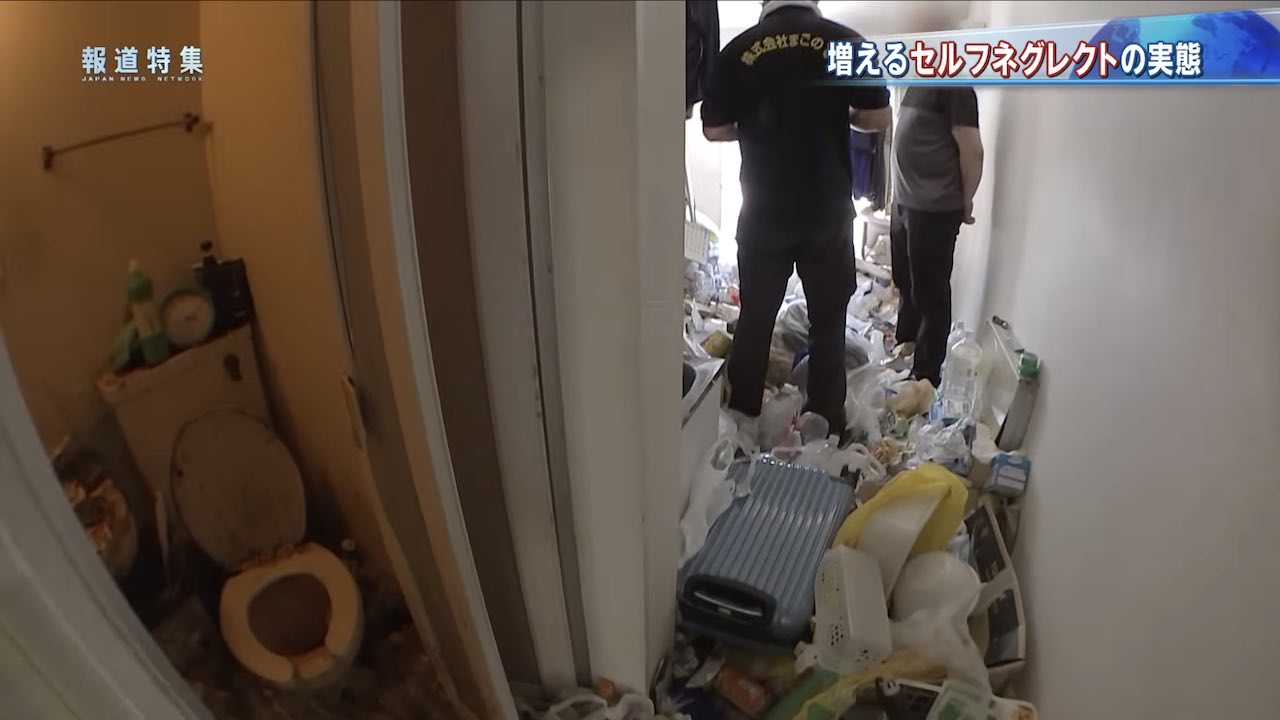TOKYO, Jul 29 (News On Japan) - The phenomenon of 'self-neglect,' where individuals abandon their own care, is on the rise, particularly among young people in Japan. This includes neglecting essential activities such as eating and bathing. A closer look into the situation reveals the stark reality.
In a rental apartment in Asahikawa, Hokkaido, a cleaning crew was dispatched by the apartment owner. The tenant had not been seen for three years, prompting the owner to request the room's cleaning. The tenant, who moved in 17 years ago while in his 30s, initially kept the room tidy. However, he started missing rent payments three years ago and subsequently vanished. The toilet was found in a dire state, with remnants of past living conditions evident throughout the apartment.
Evidence such as a 2004 liquor label suggests that the tenant’s life took a downturn around that time. Despite the deteriorating living conditions, no attempt was made to seek help, a key characteristic of self-neglect.
Professor Kishi of Toho University, a leading researcher on self-neglect, noted that while official surveys indicated around 12,000 elderly people were affected by self-neglect in 2011, the actual number is likely much higher. Increasingly, this issue is affecting working-age individuals, often due to isolated living conditions and the difficulty of disposing of possessions.
In Tokyo, a 39-year-old man who had been living in a cluttered apartment for over a decade finally sought professional help to clean up before moving out. He had spent years living among accumulated garbage, often too exhausted from work to address the mess. This scenario is becoming more common, with cleaning companies receiving over 20 requests per week from individuals unable to manage on their own.
Family dynamics can also play a role, as seen in a tragic case in Gifu City where a reclusive family refused external support, leading to the deaths of the elderly parents and their middle-aged son.
Efforts to address self-neglect include various support services and community interventions. In Tokyo, an NPO uses LINE to offer a free check-in service for individuals living alone, a program initiated after the sudden death of the founder’s brother. This service has seen increased demand during the COVID-19 pandemic as social isolation worsened.
Self-neglect is a multifaceted issue requiring comprehensive community support and increased awareness to prevent further lonely deaths.
Source: TBS
















